When the earthquake struck I was walking in the street near Shinjuku. I felt the difference straight away, usually you cannot feel quakes if you are outside but that day the buildings made noises that one only usually hears when inside them; the walls bulged and the windows rattled. I felt seasick and I stumbled along the pavement with the telegraph poles twirling above me and the trees dancing, their empty, spring branches whipping the air.
That something bad had happened was palpable; the fear worsened by my inability to call my family because the phones no longer worked. As aftershock on aftershock wobbled the earth for the next days the feeling that nothing good could ever happen again grew. It was hard to live that much suspended from the future, and for so long. Like the pause of the condemned on the scaffold steps, everyone I knew was waiting voicelessly for the next quake, worried that our luck was running-out and that next tectonic rumble would be the end of all our hopes against it.
The quake was a story that hit me in the face as a photographer; the sort of thing we ordinarily dream of. I was the very model of in the right place at the right time yet I didn’t ask for it and as the enormity of what had happened sunk in, I sought it even less. It was a story that I could not find in me the energy to follow at first: it was too close, too big, too many divergent emotions were calling me north and keeping me in Tokyo with my frightened family. But then the choice was taken away from me somewhat: the commission came and I found myself on a plane heading north with a journalist that was being constantly bullied, on his Blackberry, by an editor wanting in-depth misery on our whistle-stop-tour of towns and villages that lingered in our memory much longer than we lingered in their ravaged geography. It was the worse kind of parachute journalism yet I am glad I went because the overwhelming result of our visit was a new empathy for the amazing people of Tohoku and a lightening of the hellish sense of foreboding we had lived under for the week since the Earthquake struck.
In Iwate I went to places that had real problems, ones the media would exaggerate of course, but they didn’t need to. I saw things that have put all my fears in harsher perspective; things that have shown me the supreme power of nature and also the no less impressive strength of the human spirit. No hype is needed where hell exists unshielded and visceral. And yet even as I wiped the mud from my shoes at the hotel in Morioka for the first time in a week I was not scared, I was not looking for a way out and I was not worrying about gossip.
There are problems in the world don’t get me wrong, I understand that and in this part of the world especially at this moment things are more than difficult. The ground ignores us as its folds and shudders; yet we still do not respect it enough and have not heeded its warnings. Japan‘s days are numbered, for sure; but I know that number is in the billions and I need not worry too much. I have love and memories. I have almost all I need which the people of Otsuchi, Kamaishi, Kamiarakawa, Ofunato and especially Rikuzentakata, that I visited, do not.
While the journalist wrote his piece that first night I wrote a blog to reassure friends and family of my safety. I wrote because I was no longer scared and that is the emotion I wanted to share most. Fear seemed selfish and self-indulgent after I had met people who had lost everything and enjoyed their smiles and welcomes even as we intruded on their lives with our questions and lenses. When your neighbours stories are equal to or more tragic than yours, who do you share the pain with? Maybe they found it cathartic to talk to us or perhaps Tohoku people are just stronger but I saw people pick their way through wreckage that would have defeated me with it melancholy and just get on with the job of living anew.
For example I met an 80 year old woman who had survived Hiroshima and who smiled a ready “hello” to us as she walked through the rubble of Kamaishi with a purpose to her brisk pace that belied both her age and any destination she could have been going to in that smashed and empty town. She was proud and for a moment worried about being photographed with no make-up on until it struck her that she had no make-up any more. She was most proud of having saved her husband though, driving down to the seafront to pick him up as the warnings sounded, and racing the tsunami as she sped up into the hills to safety. She was a good driver she said.
I also met a man, whose wife and mother, had been swept away in the tsunami. He was searching his car when we met. The car rested at 45 degrees against the remains of a house and he was looking for the insurance documents and something, anything personal. He joked about not being able to get the money back then a friend walked past and we became unimportant. He shut the door to the car carefully as he left with his friend, locking it as if it was still parked on the road outside his now non-existent house. It was a small act of routine and normality that showed me, despite the sudden emptiness to his days, that he will recover.
My time in Iwate was a one of snow and mud, of boats in rice fields and houses in the sea. It was also a time of stoicism and carnage and yet I am proud to have lived for that brief moment among people that do not blame, do not hate, do not give up and do not stop being all that is best in this damaged world of ours. Their lives made me understand when fear is truly justified; which is why I am not scared anymore.
Submitted by: Damon Coulter

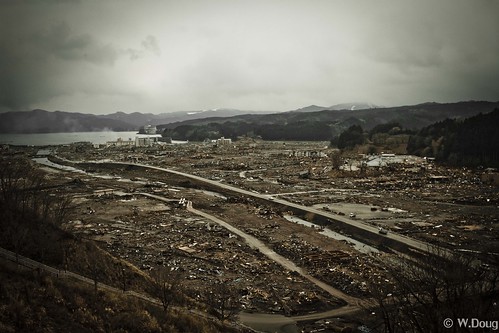



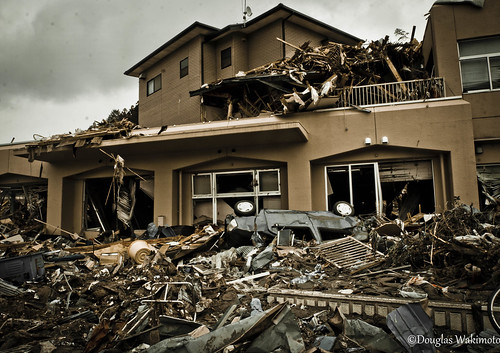
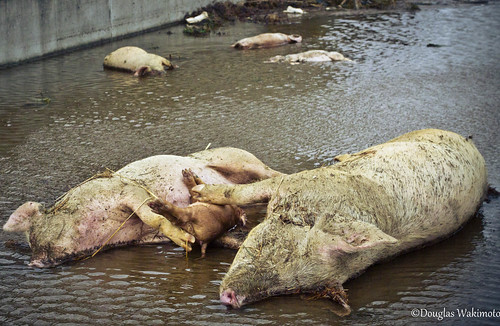


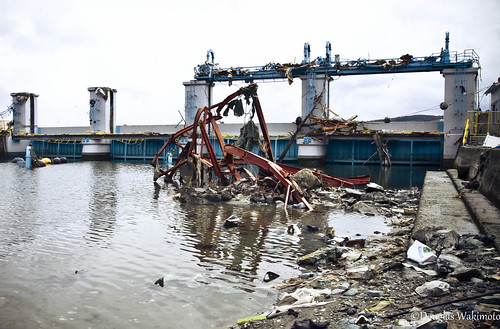
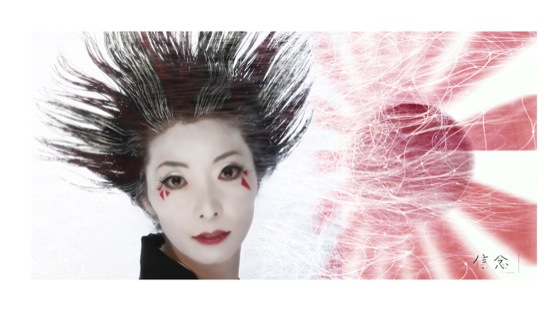
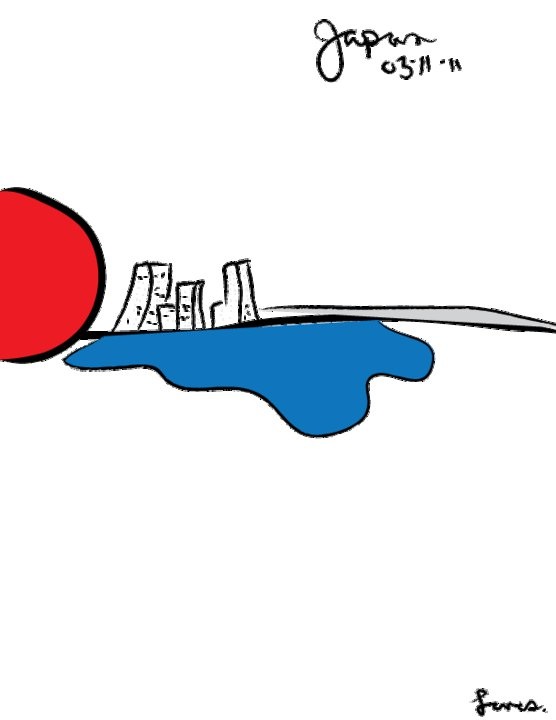
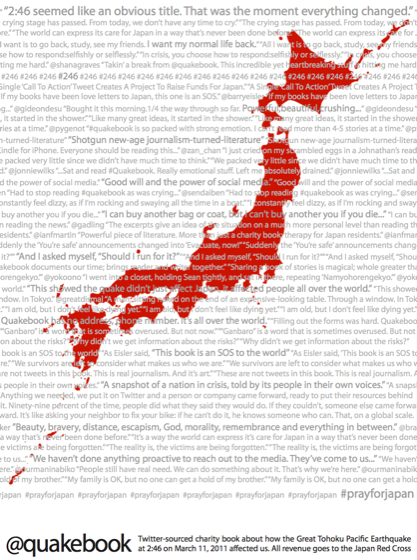
Recent Comments